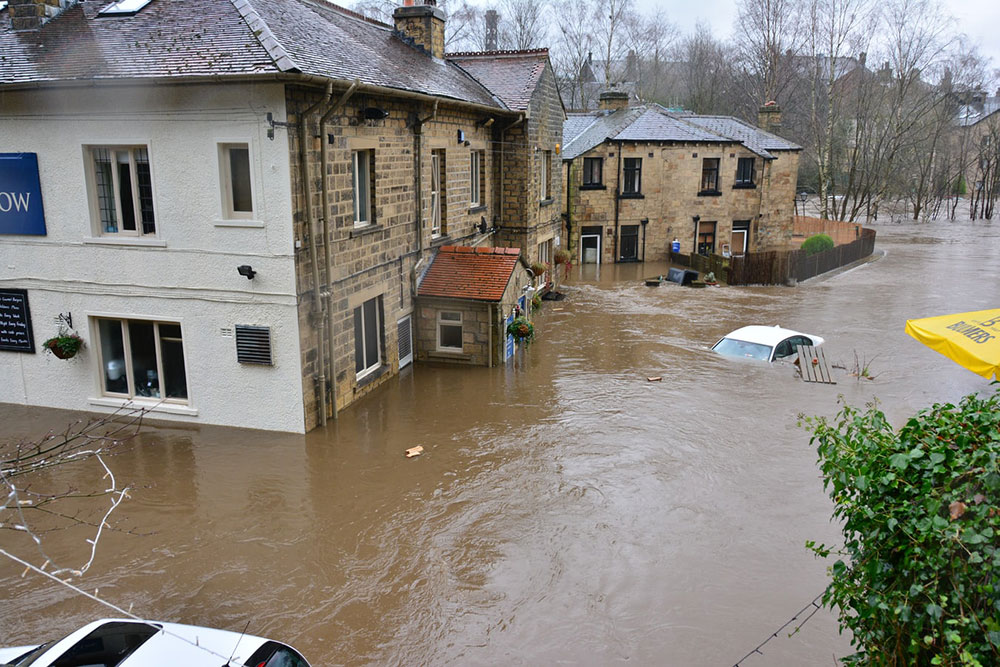Advertisement
Did your basement take a big hit in a recent storm? Downpours can easily flood basements and probably create a lot of mess. Wading through soaking carpeting, soggy boxes of books, sopping sofa, and floating dog food bowels can make you feel confused about what you should do. Perhaps you can contact companies or experts that help property owners to deal with flooded basements.
Construction experts and interior designers unanimously agree that you should act quickly. Mop up water and fix the possible damage. The longer your basement stays flooded, the more water-related damage you will have to deal with. Besides, even minimal basement leaks can compromise the structural integrity of your property’s foundation.
Address the flood issue quickly
Here are five essential tips for dealing with a flooded basement.
Remove water
Once you notice your basement has been flooded, remove the water as quickly as possible. An inch or more of standing water can be removed using a wet vac. In case you don’t have this piece of equipment, you can borrow, buy, or rent one. If there is no much water on the basement floor, you can just use heavy towels to wipe it out. This should be done immediately to prevent mould growth.
Dry the basement out
First, remove all wet items from your basement. If you intend to return some items like sofas in the basement, be sure to keep them dry.
Use fans and dehumidifiers to move air around to discourage the growth of mildew and mould. Keep the dehumidifiers at least 8 inches away from the walls for best air circulation. Be sure to wash and clean the air filters once every week to help these pieces of equipment operate efficiently. Lastly, keep your basement dry. Be sure to keep the air conditioning system running constantly.
Address the main cause of the basement floods
Start by checking your drains, gutters, and downspouts. A damaged gutter system is one of the major causes of flooded basements. If the gutters and drains or dirty or clogged, you may want to address the issues on time. Failure to do so will lead to water-related issues in your basement. If you do not know what’s causing a water leak in your basement, consult with an expert. A proper property inspection may be necessary to address the main cause of basement leaks and floods.
Long-term solution – basement remodel
Many property experts agree that a home’s first impression counts. A clean house that well-maintained has a higher value than an equivalent home that isn’t. This is one of the reasons you should remodel your business to prevent future water leaks.
If you intend to maintain and increase the value of your home, you might be wondering how you can successfully plan and handle a basement remodel project. Is such a project easy or challenging? The answer isn’t always a resounding yes or a no. It’s advisable to invest in projects that will enhance your home’s aesthetic value. And preventing water damage, particularly in the basement, is worth it. Here are tips to help you.
First, plan your basement remodel project. Whether you have lived in your current home for some time or you bought it recently, it’s wise to plan your basement renovation activities. Planned renovations work better than impulse renovation. Create a list of all activities to be carried out, and plan effectively. As mentioned earlier, you may want to get your property’s foundation and basement checked by an expert before you begin your basement remodelling activities.
Now you have a home remodel plan. Talk to a property expert to determine the expected return those renovations might bring. Some improvement ideas might add more value to your home than others.
Next, handle each basement remodelling activity successfully. Commit to handle one renovation project at a time. If you plan to repaint your basement, handle one aspect at a time. For example, you want to fix damaged stair before you revamp the basement floor. That keeps the tasks small and manageable. Create a list of all the things you want to do and prioritize them based on the resources (time, necessary materials, and money) available.
Lastly, find if you should fix the basement flood issues and sell the property and sell it. Are you torn between upgrading your home and selling it? First, determine the cost of acquiring a new home and the current value of your home. Estimate the cost of upgrading your home and compare an upgrade and sell options. If upgrade projects are too expensive, then, it’s wise to sell the property.
Simple renovation projects like upgrading basement, addressing the primary causes of water damage repainting the entire home, landscaping, and more, can improve the value of your home. However, you must plan and handle each project at a time.

